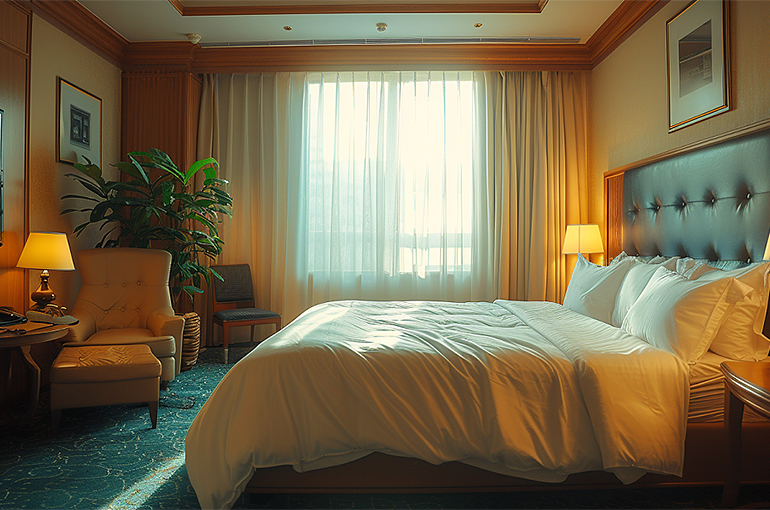 Many Luxury Hotels Go on Sale in China as Distressed Owners Cash Out Despite Market Uptick
Many Luxury Hotels Go on Sale in China as Distressed Owners Cash Out Despite Market Uptick(Yicai) Aug. 14 -- A number of luxury hotels have come onto the market in China, as, on top of the operating pressures, many owners find themselves in financial difficulties with no option but to sell despite the recent rebound in the global tourism sector.
The hotel market in China is particularly active at the moment as although the tourism industry has started to pick up after three hard years during the pandemic, some hotel owners want to cash out while potential buyers see them as good investments, Li Xiang, head of research at UK real estate firm Savills' North China arm, told Yicai.
The Sofitel Beijing Central, for instance, which is a luxury five-star hotel with over 300 rooms on Chang’an Avenue in the heart of Beijing, is on sale for a reported asking price of CNY2.8 billion (USD391 million). This has to do with the debt crisis of its major shareholder, according to hotel trading platform Jiudiangong.
Shareholder Tianfu Rongde Hotel’s Jianguomen Branch was sentenced by the Shanghai Financial Court in May to repay CNY102 million (USD14.3 million) to a debtor. And Tianfu Rongde Hotel itself had its stake frozen this year.
Owners of luxury hotels are struggling to make ends meet, either due to the high operating costs or due to their own financial difficulties, and it is understandable that many decide to sell, said travel analyst Zhao Huanyan.
Although the global tourism industry is recovering, there is still an oversupply of hotel rooms in China, making it difficult for hotel owners or their management companies to improve performance, Zhao said.
A number of hotels are being auctioned off in judicial auctions. For instance, the assets of insolvent Chongqing Baichun Industrial Company, which will be sold on Sept. 2, include the Banyan Tree Hotel in Beibei, southwestern Chongqing municipality, as well as the plot next to it, which is an unfinished resort.
Baichun was ruled bankrupt by the courts in August last year and owed tens of millions of Chinese yuan, equivalent to millions of US dollars, to the builder.
Large investment institutions have always favored hotels, but in the past year or two prices have come down significantly, said Wei Changren, founder of Jinglv Group. “On the one hand, the revenue of luxury hotels is not meeting expectations, and on the other hand, owners are facing a cash flow shortage, prompting them to sell,” said Wei.
Compared with office buildings, there is less “depreciation” of luxury hotels thanks to the rapid recovery of the tourism industry after the pandemic, Li said. Therefore, generally speaking, in the medium and long term, the hotel industry will continue to grow and has investment potential.
Editors: Tang Shihua, Kim Taylor